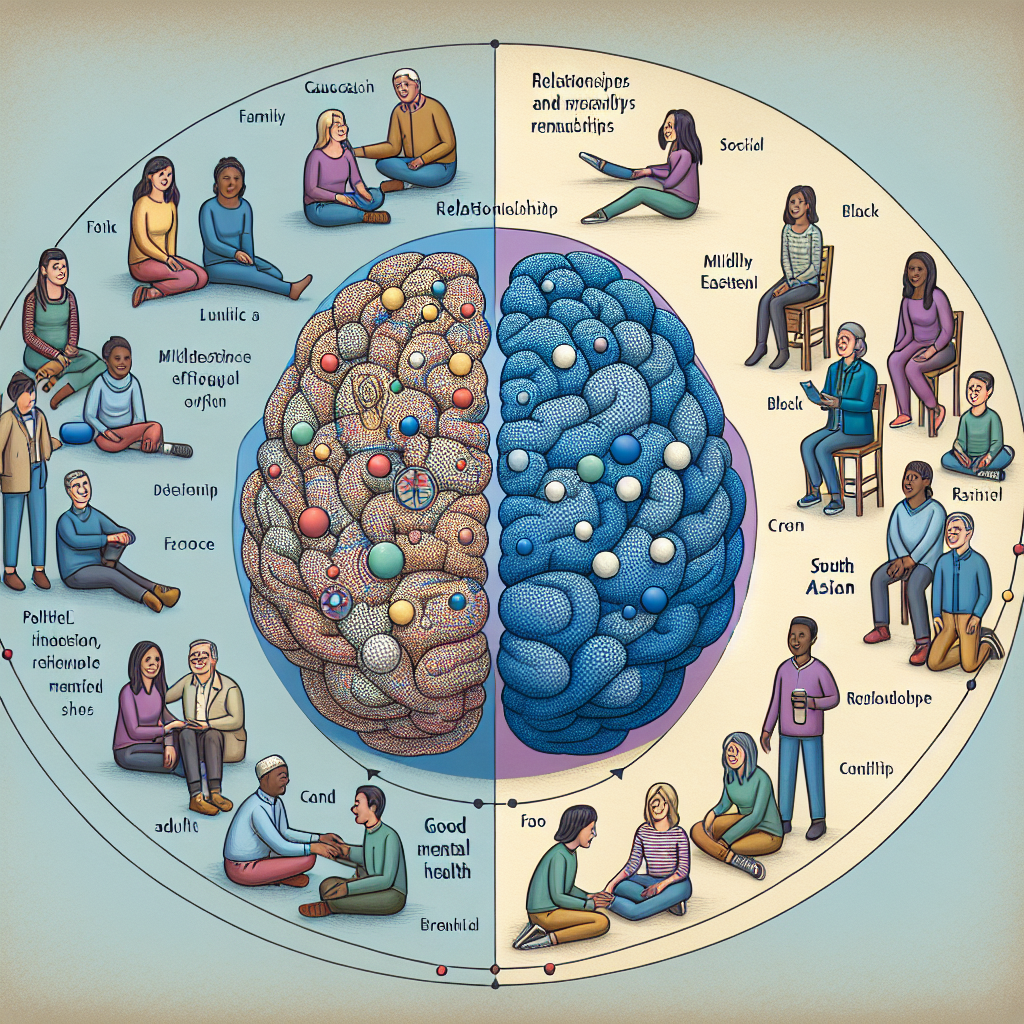Relationships play a crucial role in our mental health and well-being as we journey through adulthood. From romantic partnerships to friendships and familial connections, the quality of our relationships can significantly impact our emotional and psychological health. Research has shown that healthy relationships can promote mental wellness, while toxic or unhealthy relationships can contribute to the development of mental health issues. In this article, we will explore the link between relationships and mental health in adulthood, and provide insights into how we can cultivate positive and nurturing relationships to support our overall well-being.
The Impact of Relationships on Mental Health
Our relationships with others have the power to shape our thoughts, feelings, and behaviors in profound ways. Positive and supportive relationships can boost our self-esteem, provide emotional comfort and validation, and offer a sense of belonging and connection. These types of relationships can act as a protective factor against mental health issues such as anxiety, depression, and stress, offering a buffer against life’s challenges and difficulties.
Conversely, toxic or unhealthy relationships can have detrimental effects on our mental health. Constant conflict, lack of trust, emotional manipulation, and feelings of isolation or rejection can contribute to feelings of anxiety, depression, and low self-worth. In some cases, abusive relationships can lead to trauma and long-term psychological damage, impacting our ability to form healthy connections with others in the future.
Types of Relationships and Their Impact on Mental Health
Various types of relationships can influence our mental health in different ways. Here are some common relationship dynamics and their potential impact on mental well-being:
1. Romantic Relationships: Romantic partnerships can be a source of love, support, and companionship, enhancing our sense of happiness and fulfillment. However, conflicts, communication breakdowns, and power struggles in romantic relationships can lead to emotional distress and relationship dissatisfaction, contributing to feelings of sadness, anxiety, and insecurity.
2. Friendships: Friendships provide us with social support, laughter, and shared experiences that can boost our mood and overall well-being. Close friendships can offer a sense of belonging and acceptance, reducing feelings of loneliness and isolation. However, toxic friendships characterized by jealousy, competitiveness, or lack of trust can erode our mental health and self-esteem.
3. Family Relationships: Family relationships play a significant role in shaping our identity, beliefs, and values. Positive family dynamics can promote feelings of security, love, and acceptance, fostering emotional resilience and self-confidence. However, dysfunctional family relationships marked by conflict, abuse, or neglect can lead to emotional trauma, low self-esteem, and difficulty forming healthy attachments with others.
4. Work Relationships: Relationships with colleagues, supervisors, and peers in the workplace can impact our mental health and job satisfaction. Positive work relationships built on trust, respect, and collaboration can enhance our sense of motivation and engagement. In contrast, conflicts, bullying, or a toxic work environment can contribute to stress, burnout, and mental health issues such as anxiety and depression.
How to Cultivate Healthy Relationships for Better Mental Health
Building and maintaining healthy relationships requires effort, communication, and mutual respect. Here are some tips for cultivating positive and nurturing relationships that support your mental health:
1. Communication: Effective communication is key to building strong and healthy relationships. Be open, honest, and transparent with your thoughts and feelings, and listen actively to the perspectives of others. Express your needs and boundaries clearly, and encourage open dialogue to resolve conflicts and misunderstandings.
2. Trust: Trust is the foundation of any healthy relationship. Build trust by honoring your commitments, being reliable and consistent, and respecting the boundaries of others. Trust also involves vulnerability and authenticity, allowing yourself to be emotionally open and transparent with your loved ones.
3. Boundaries: Setting and respecting boundaries is crucial for maintaining healthy relationships. Establish clear boundaries around your time, energy, and emotional well-being, and communicate them effectively to others. Boundaries help protect your mental health and prevent feelings of overwhelm or burnout in your relationships.
4. Empathy: Practice empathy and compassion in your interactions with others, seeking to understand their perspectives, emotions, and experiences. Empathy fosters connection and understanding, promoting emotional intimacy and mutual support in your relationships.
5. Self-care: Prioritize self-care and well-being in your relationships, taking time to nurture your physical, emotional, and mental health. Set aside time for relaxation, hobbies, and activities that bring you joy and fulfillment, and prioritize your needs and boundaries in your interactions with others.
FAQs:
Q: Can relationships affect my mental health?
A: Yes, relationships can significantly impact your mental health. Positive and supportive relationships can promote mental well-being, while toxic or unhealthy relationships can contribute to the development of mental health issues such as anxiety and depression.
Q: How can I improve my relationships for better mental health?
A: To improve your relationships for better mental health, focus on effective communication, building trust, setting boundaries, practicing empathy, and prioritizing self-care. These strategies can help cultivate healthy and nurturing connections with others.
Q: What should I do if I’m in a toxic relationship?
A: If you find yourself in a toxic relationship that is negatively impacting your mental health, consider seeking support from a mental health professional, counselor, or trusted loved one. Establish clear boundaries, communicate your needs, and prioritize your well-being in your interactions with the person.
Q: How can I cultivate healthy work relationships?
A: To cultivate healthy work relationships, focus on building trust, communication, collaboration, and mutual respect with your colleagues, supervisors, and peers. Set clear expectations, communicate effectively, and seek feedback to foster a positive and productive work environment.
In conclusion, relationships play a crucial role in our mental health and well-being in adulthood. By cultivating healthy and supportive connections with others, we can enhance our emotional resilience, self-esteem, and overall quality of life. Prioritize communication, trust, boundaries, empathy, and self-care in your relationships to promote mental wellness and build fulfilling connections that nurture your soul.




Leave A Comment